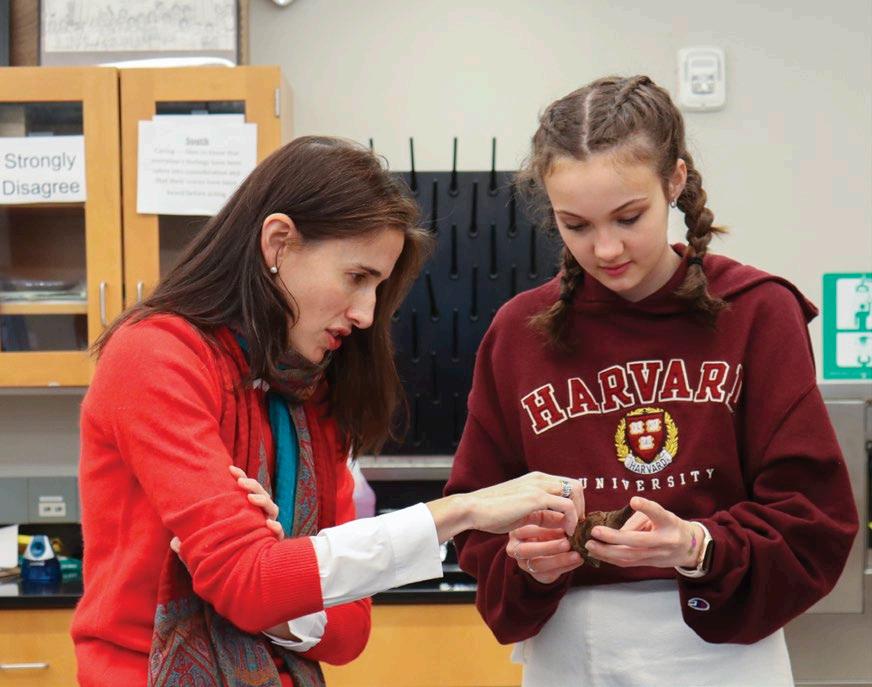
1 minute read
Shares Knowledge with Students
Dr. Elizabeth Macaulay ’95, archeologist and architectural historian, who currently teaches at the Graduate Center, the City University of New York (CUNY), spent the day with GCDS Upper School students in Joe Perry’s Archeology II class. Dr. Macaulay visited the class’ archeological dig behind the Upper School and spoke with students about her profession and how she became interested in the field. She also examined the artifacts from the dig with students and helped them question and theorize about different pieces and the potential importance the material culture represents.
“It is such an amazing and unique opportunity for our students to be addressed by Dr. Macaulay,” said Mr. Perry. “Her international experience, position in the field, association with national archeological organizations, connections with current graduate research, and overall knowledge of theory, practice, and methodology are unprecedented and something high school students rarely get to tap into. I am so glad our students were able to ask her questions and discuss their knowledge and interest in archeology with her. It is a wonderful culminating experience for our seniors and an inspiration for our juniors.”
Dr. Macaulay’s research focuses on the material culture of the Roman, Late Antique, and Islamic worlds, with particular emphasis on Roman gardens and architecture, the reception of ancient material culture in the United States, and Islamic Architecture. She received her B.A. from Cornell University (her senior thesis: The Political Uses of Roman Gardens, was the winner of the undergraduate thesis prize in the College of Arts and Sciences), and her Ph.D. from University of Oxford.
I
This course serves as an introduction to the field of archeology. The course reviews the sub-disciplines of archeology and discusses both traditional and modern methods of excavation. It is broad in both time and space. We study sites from Homo sapiens’ origins (200,000 BCE) to colonial period shipwrecks (1700 CE) and from Indiana to Indonesia. Students learn about human prehistory and history through material culture and see how humans have evolved biologically and socially through time. An emphasis on questioning theories and explanations of the past is always at the core of new discoveries and something students are encouraged to do as they learn the basics of archeology.

Archeology Ii
This course focuses on specific time periods and the changes cultures make through time. Reviewing material culture, typology over time, historical data, and more, students will understand how archeologists recreate what life may have been like in certain time periods and cultures. This course is designed to culminate in some sort of field study, whether an actual archeological dig or a study of artifacts from a specific collection or lab work from a specific site. Students will leave this course having actually experienced archeological work.










